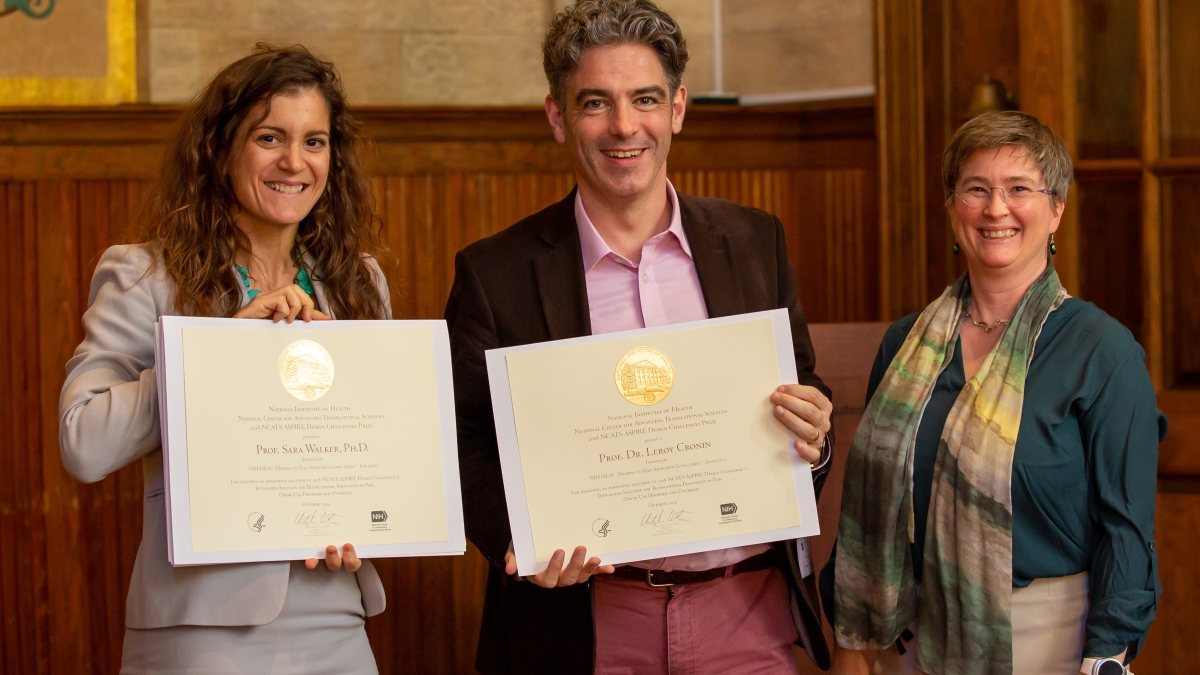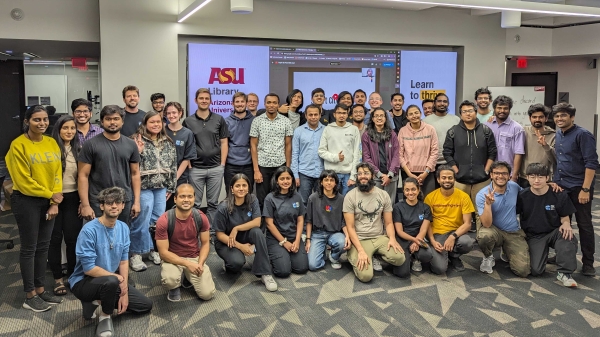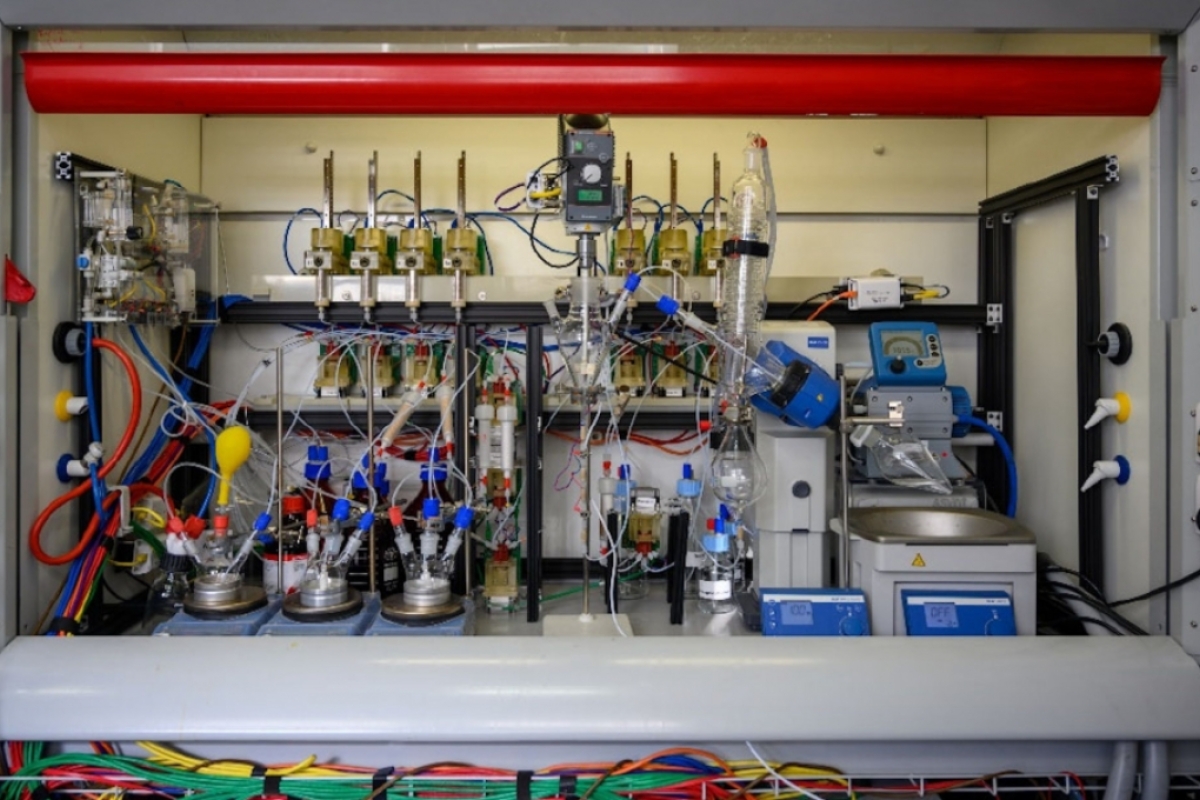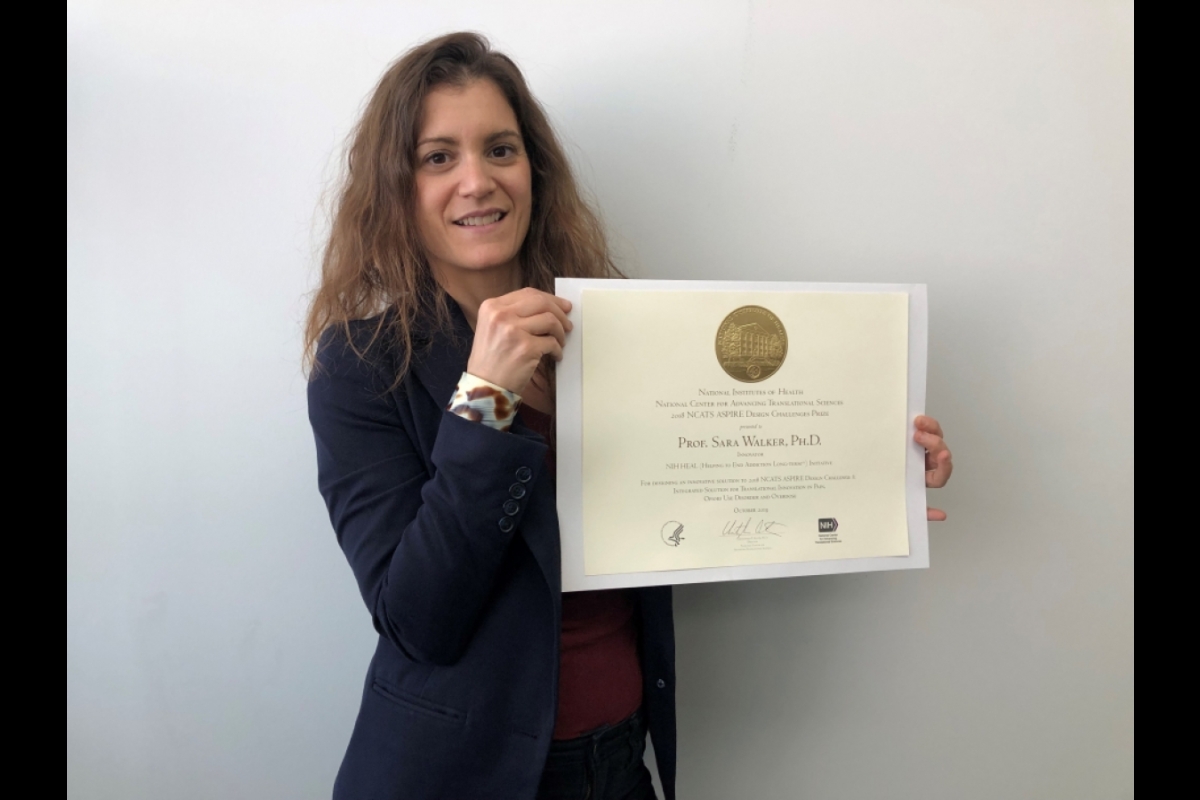ASU astrobiologist and physicist wins NIH challenge prize for innovation

Sara Imari Walker (left) accepting the NIH NCATS ASPIRE award in Bethesda, Maryland, with Leroy Cronin and NIH representative. Photo courtesy NIH
Arizona State University astrobiologist and physicist Sara Imari Walker of the School of Earth and Space Exploration and the Beyond Center was recently selected as the winner of a National Institutes of Health (NIH) NCATS ASPIRE Design Challenge award for translational innovation in pain, opioid use disorder and overdose.
Walker won the challenge prize of $250,000 along with an interdisciplinary team of researchers including Leroy Cronin, the Regius Chair of Chemistry at Glasgow University. Specifically, Walker brought her expertise in exploring chemical space using statistical methods, while Cronin developed a programmable chemical robot, “The Chemputer” for molecular discovery and synthesis.
“Sara Walker has an extraordinary ability to find links between disparate subjects across the sciences,” said Regents Professor Paul Davies, director of ASU’s Beyond Center. “Her deep grasp of information theory and the nature of complexity enables her to apply novel computational techniques to profound problems. Her proposal with the distinguished scientist Cronin exemplifies her talents.”
For the award, the team proposed a solution called “Integrated Discovery Chemputer Toward Addiction Free Opiates” or “ChemOPs” for short. In essence, the team’s winning bid proposes an integrated solution that leverages the Chemputer invention for the design, encoding, discovery and synthesis of new candidate molecular entities that will be explored as addiction-free opiates.
“The aim is to propose an unprecedented set of new compound libraries, based on known opioid structures, biochemical properties, or physical properties,” Walker explained.
The plans for these compounds would then be broken into “makeable” (or “chemputable”) synthesis plans that could be made automatically with the Chemputer. These could then be tested to screen for addiction-free candidates that can prevent pain.
The ASU-Glasgow University team developed the Chemputer for origin of life chemistry searches, which is more directly related to Walker’s primary field of study, but with this award she and the team plan to work with NIH to expand the duties of their programmable chemical robot for the betterment of human health.
The award is from the National Institutes of Health Helping to End Addiction Long-term Initiative, or NIH HEAL Initiative. The goal of the NCATS ASPIRE Design Challenges is to spur innovative approaches toward solving the opioid crisis through development of novel chemistries, data mining and analysis tools, and biological assays that will revolutionize discovery, development and testing of next-generation, nonaddictive analgesics to treat pain, as well as new treatments for opioid use disorder and overdose.
More Science and technology

ASU planetary scientist to be inducted into the National Academy of Sciences
The National Academy of Sciences is inducting School of Earth and Space Exploration Director Meenakshi Wadhwa into the 2023 class…

Unlocking the potential of AI for homeland security
“Can we do what we're doing now cheaper, more efficiently, more effectively?” Adam Cox, director in the Office of Strategy and…

SpaceHACK highlights student solutions to environmental challenges, digital divide
By Adrianna Nine About 250 students from around the world convened online and at Arizona State University on March 22 for the…

